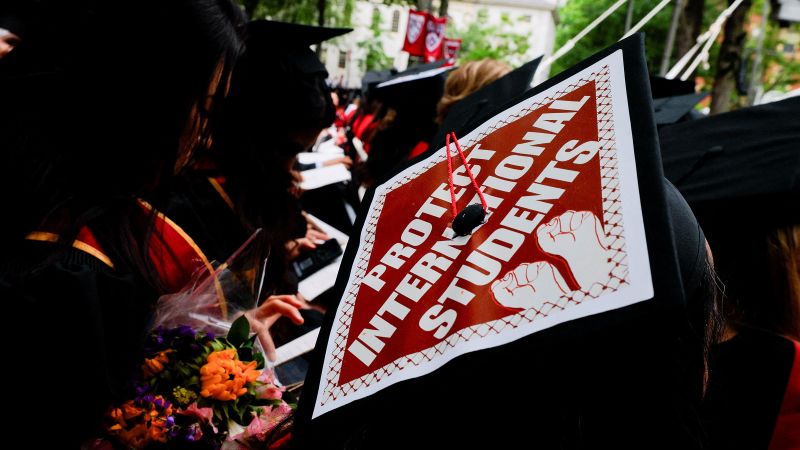US Visa Crackdown: Chinese Students Face Uncertain Futures Amidst Anger and Anxiety

A wave of uncertainty and anger is sweeping through China's student community following the US government's announcement of potentially aggressive visa restrictions targeting Chinese nationals. The proposed measures, reminiscent of similar actions taken during the Trump administration, have triggered widespread anxiety and confusion among current and prospective students, as well as their families, who are now grappling with an uncertain future.
The core of the issue revolves around concerns that the US government intends to revoke or deny visas to Chinese students and researchers deemed to have ties to the Chinese military or who are studying sensitive fields. While the specifics of the plan remain somewhat unclear, the potential impact is significant, affecting thousands of students pursuing higher education and research opportunities in the United States.
A Climate of Fear and Disruption
The announcement has created a palpable climate of fear and disruption. Many students are questioning whether their visa applications will be approved, and those already in the US are worried about potential deportation. The ambiguity surrounding the criteria for evaluation has only exacerbated these fears, leaving students unsure of their standing and future prospects. Families back in China are equally concerned, fearing the financial and emotional toll of disrupted education plans.
“It’s incredibly stressful,” said Li Wei, a PhD candidate in engineering at a US university. “We’ve dedicated years to our studies, and the thought of having our visas revoked without a clear reason is devastating. It feels like our hard work is being undermined.”
Echoes of the Trump Era
This isn't the first time Chinese students have faced such challenges. During the Trump administration, similar restrictions were implemented, leading to a decline in Chinese student enrollment in the US. The current proposals are seen by many as a revival of those policies, raising concerns about a renewed period of political tension impacting academic exchange.
National Security Concerns vs. Academic Collaboration
The US government maintains that these measures are necessary to protect national security and prevent the transfer of sensitive technology to China. They argue that some Chinese students and researchers are engaged in espionage or intellectual property theft, posing a threat to US interests. However, critics argue that the broad nature of the proposed restrictions risks unfairly targeting innocent students and hindering valuable academic collaboration.
“Blanket restrictions are not the answer,” argues Professor Emily Carter, a specialist in US-China relations at Trinity College Dublin. “While concerns about national security are legitimate, they should not come at the expense of academic freedom and international exchange. Targeted investigations are far more appropriate than sweeping measures that punish entire groups of students.”
Impact on US Universities and Research
The potential impact extends beyond the students themselves. Chinese students contribute significantly to US universities, both financially and intellectually. They often fill crucial roles in STEM fields, and their research collaborations are vital to advancing scientific knowledge. A significant decline in Chinese student enrollment could harm US universities and weaken their global competitiveness.
Looking Ahead: Uncertainty and Advocacy
The future remains uncertain for Chinese students in the US. Student organizations and universities are advocating for clarity and fairness in the visa application process. Many are urging the US government to adopt a more nuanced approach that addresses national security concerns without unduly penalizing innocent students. The situation highlights the complex interplay of politics, national security, and academic exchange in an increasingly interconnected world, and its resolution will have significant implications for both China and the United States.






